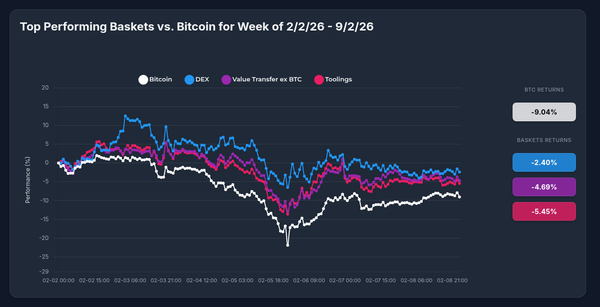Liquidity Surge Ahead: How 2025's Global Fiscal Expansion Sets Stage for Crypto Market Revival

The global monetary landscape in 2025 reveals a powerful convergence of fiscal expansion and institutional crypto adoption that signals a potential sea change for Bitcoin and cryptocurrency markets. Our analysis of recent macroeconomic developments points to one clear thesis: unprecedented liquidity injection across major economies is creating the ideal conditions for sustained crypto market growth.
Macroeconomic Liquidity Drivers
United States: Record Deficit Spending
- $2 trillion deficit projected for FY 2025 - up $90-110 billion from FY 2024
- Federal spending increased 5-7% year-over-year despite higher tariff revenues
- Key insight: Higher interest rates = higher government debt service payments = more money flowing to private sector
- Fed maintaining 4.25%-4.5% rate range, injecting approximately $60 billion additional interest payments annually
China: Infrastructure-Led Stimulus
- 4% of GDP fiscal deficit target - up from 3% in 2024
- Local government special bonds increased to CNY 4.4 trillion (from CNY 3.9 trillion)
- Government-led credit expansion driving liquidity growth
- Critical factor: China's decoupling from USD creates domestic liquidity without foreign reserve constraints
Eurozone: Managed Expansion
- Budget deficits approaching 3% of GDP threshold
- Rising defense spending adding fiscal stimulus
- ECB maintaining steady rates after mid-2024 cuts
Institutional Crypto Adoption Accelerates
ETF Revolution
- BlackRock's Bitcoin ETF: $86 billion in assets - market leader position
- Total U.S. Bitcoin ETF inflows: $118 billion
- ETFs now account for 57.3% of U.S. Bitcoin trading volume
- Bitcoin reaching $124,000 highs driven by institutional demand
Regulatory Clarity
- GENIUS Act passage removing institutional barriers
- SEC deregulatory policies on in-kind mechanisms
- 85% of firms allocated or planning to allocate to digital assets by 2025
- BlackRock pursuing Ethereum staking products for yield generation
The Liquidity-Crypto Connection
Our thesis rests on a fundamental monetary reality: when governments spend more than they tax, and when banks create new credit, the result is increased money supply flowing into private hands. This liquidity seeks the highest risk-adjusted returns, and Bitcoin has emerged as the preferred store of value for this excess capital.
The convergence of three factors creates a perfect storm for crypto:
- Unprecedented global liquidity creation through coordinated fiscal expansion
- Institutional infrastructure maturation via regulated ETFs and custody solutions
- Regulatory normalization reducing adoption friction
Market Warning Signs
However, macro analyst Alan Longbon's recent observations highlight potential headwinds:
- 5 consecutive months of falling U.S. house prices - threatening the capital structure foundation
- August 2025 showed "big federal government fiscal spending weakness"
- Private sector balance strength remains dependent on continued deficit spending
Investment Implications
The macro setup favors crypto adoption over the next 12-18 months, but investors should monitor:
- Sustainability of government deficit spending levels
- Real estate market stability as collateral for the banking system
- Continued institutional allocation flows into crypto ETFs
- Chinese fiscal policy execution and domestic consumption support
The fundamental story remains bullish: as traditional monetary systems inject unprecedented liquidity while crypto infrastructure matures, Bitcoin and digital assets are positioned to capture significant capital flows. The question isn't whether institutional adoption will continue, but how quickly traditional portfolios will reach their target crypto allocations.
Bottom line: 2025's liquidity surge, combined with institutional crypto infrastructure, creates the most compelling macro environment for digital assets since Bitcoin's inception. Investors should position accordingly while remaining vigilant about traditional financial system stability indicators.





